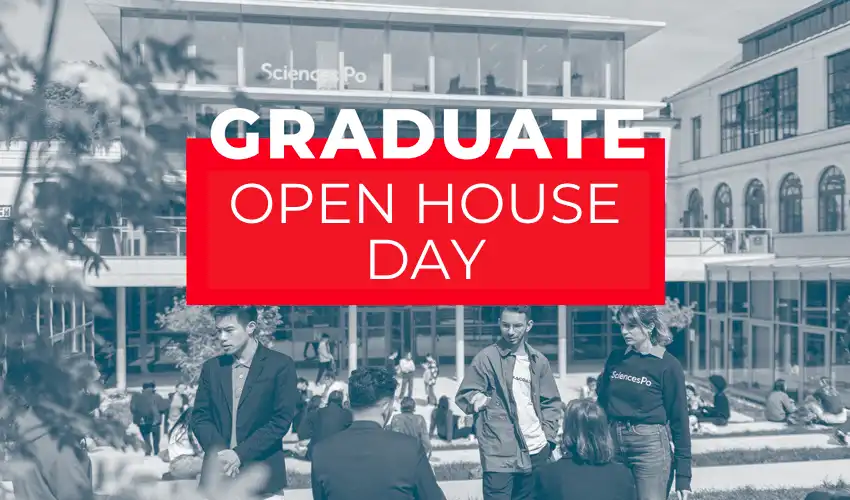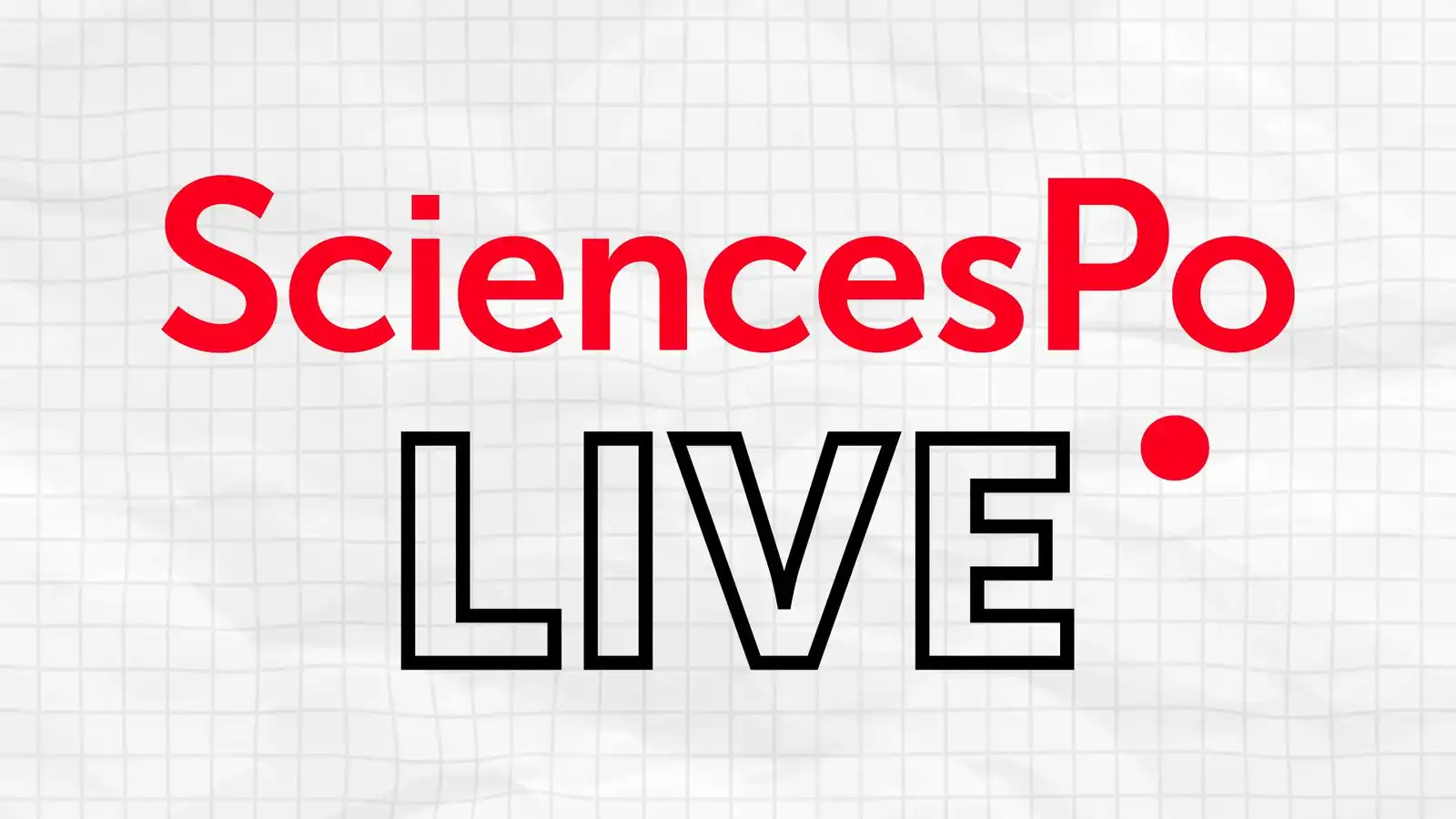
Home>Academics>International and National Dual Degrees>Dual degree in Technology and Global Affairs with IE University
Dual degree in Technology and Global Affairs with IE University
Two-Year Dual-Degree
Programme in English
France & Spain
Virtual Graduate Open House day, October 2024

On 19 October 2024: meet faculty members, students, and representatives from admission and student services and learn more about our Master’s programmes.
A word from the Deans
General objectives
The Master degree in Technology and Global Affairs, launched jointly as a dual degree between the Paris School of International Affairs (PSIA) and IE’s School of Politics, Economics and Global Affairs (IE-SPEGA), takes a multidisciplinary approach to prepare individuals to navigate skillfully the complex intersection of rapid technological change and the transformation of the global geopolitical landscape. It will equip students with the knowledge and expertise to become leaders in the public and private sector.
The program’s curriculum uniquely weaves three key dimensions: the impact of technology on geopolitical and security developments; the economic and business transformations driven by technology; and the technology driven evolutions of citizenship and fundamental rights. Issues related to the governance and regulation of technology will be treated as a fourth, cross-cutting dimension.
Main orientations and specific features
Technology, often simplified as Tech, is used here as a generic concept encompassing a broad range of disciplines and innovations. It relates particularly to computing, the use of data and algorithms, as well as technological advancements in the digital sphere (e.g. internet connectivity, social media platforms, online information sharing, digital communication tools, etc.). More recently, Artificial Intelligence (A.I.) has erupted as a disruptive and transformative component of this multidisciplinary reality.
When approached from the perspective of policy-making, geopolitics, and national and global governance more generally, technology appears as a powerful yet challenging force. It drives innovation, improves efficiency, and enhances connectivity and human exchange at a global scale. However, it also presents fundamental concerns and ethical dilemmas for our societies, our economies, and our forms of governance and citizenship.
This dual Master in Technology and Global Affairs will equip its students with the best tools (analytical, technical, theoretical as well as very practical) to confront and deal with many of the questions posed at this pivotal moment of change. It will empower them to be at the very forefront of this transformative process: a process that is best approached and understood with an international and multilateral perspective. It will also provide students with the necessary skills to deal professionally with technology as it relates to the social sciences and impacts on global affairs.
Watch Dean Arancha González speak about the major features of the programme
Programme overview
PSIA and IE-SPEGA have joined forces to offer this unique dual Master in Technology and Global Affairs that provides theoretical, practical and technological skills to better apprehend a world in deep transformation.
This program is rooted in the respective strengths of both institutions: Sciences Po’s long heritage of excellence in the social sciences and PSIA’s leading position in International Affairs coupled with IE’s innovative vision and entrepreneurial spirit. With a strong mutual commitment to diversity, the program welcomes students from across the world to create an immersive international experience in the heart of Europe.
The Master in Technology and Global Affairs is exclusively offered in English. Whilst there are no technical prerequisites to join the program, students are expected to be ready to engage in earnest with tech-related skills (e.g. data analysis and programming) and matters (the role of algorithms) that are fundamental to understand and deal with the complex intersection of technology and global affairs.
Structure

Download the program structure (PDF, 57 Kb).
This unique program provides training in technology’s relationship with the social sciences and its impact on global affairs, blending outstanding academic training with an innovative approach to new subject matter.
The curriculum is delivered over two years, with each year comprising courses and training with a value equivalent to 60 ECTS credits.
Year One at PSIA in Paris covers the fundamental core blocks of geopolitics and security, prosperity and economy, and citizenship and rights across two semesters from August to May. It also offers an in-depth introduction to the fundamentals of technology, including skills and ethics, which takes a strong practical approach. Students will also follow courses from one of 18 regional or thematic Concentrations (or minors), as well as optional courses to develop or deepen analytical and methodological skills.
During the Summer vacation between the first and second year, students can participate in an optional internship in Spain, France or various other locations.
Watch Alex Kindel present its course Fundamentals of Technology
Year Two at IE-SPEGA in Madrid retains the structure of the three core blocks across three terms from September to July. It also offers a deep dive into technological skills that complement the policy-related content and includes courses on organizational skills. Students can choose to produce a Master’s thesis or complete a final project during the second and third terms.
Careers opportunities
Tech is advancing quicker than our capacity to adapt to it and leverage it for good. There is a growing demand in both the public and the private sector for professionals who can combine a solid understanding of Tech’s impact on, and implications for, international affairs.
The challenges arising out of technology’s place in a complex geopolitical landscape, at a time when emerging technologies such as AI and big data are disrupting every conceivable field, will require high-profile roles in governance, tech regulation, international affairs, and business.
Graduates will be solidly equipped to take on such roles and to pursue rewarding careers both in the public and in the private sector, combining their newly acquired perspective, vision and technical skills with other vocational or professional interests. They will be prepared to serve at national, multilateral and intergovernmental administrations in a range of roles related to geopolitics, defence, cybersecurity, and other policy areas; as well as within large corporations and respected consultancy firms.
Scientific advisor
Ignasi Guardans holds a Ph.D, is a senior international consultant and is an Adjoint Professor at PSIA. Ignasi started his career as a Law Professor. He later worked for a few years as a business lawyer, during which time he was involved in a number of contracts in the media and telecom industries.
In 1996, he started a political career, serving successive elected mandates as a Member of the Spanish Parliament (1996-2004) and at the European Parliament (2004-2009). After that, he served as Director General of Cinema and Audiovisual Arts in Spain, and Director for Public Affairs of Eurovision in Geneva. Throughout this period (which started before the birth of Google), Ignasi was directly involved, both as an interested front-row witness and as a drafter and implementer of new policy and new regulation, in the birth of digital privacy, video surveillance or cybersecurity as topics of political interest; the beginning and implant of cloud computing and e-commerce; online piracy; the first video-on-demand and streaming platforms; digital finance, and other topics that comprise today’s global technology and platforms’ ecosystem. Simultaneously, his international activity included policy work in European Affairs, International Trade and Foreign Policy & Security.
Since his return to the private sector in 2012, Ignasi has been monitoring the ever-growing interactions of tech and policy, now as international consultant. Ignasi has been decorated by the Spanish and French Government, and is a regular media contributor in Spain, with a strong presence in social networks.
Admissions
The dual degree is open to all candidates worldwide. Students interested in this dual degree should apply directly via the Sciences Po Admissions website.
Applicants should select Dual Degree, PSIA and then click on Dual Degree Sciences Po (PSIA) – IE University : Technology and Global Affairs.
TUITION FEES
Students pay their fees:
FINANCIAL SUPPORT
Find out about the financial aid available:
Contact
- Sciences Po PSIA, Catarina Laranjeira: catarina.laranjeira@sciencespo.fr
- IE SPEGA, Paula Heras: paula.heras@ie.edu
